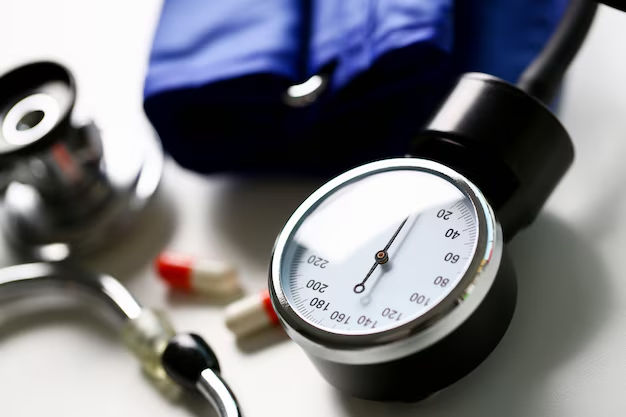Your Guide to Can Hypertension Cause
What You Get:
Free Guide
Free, helpful information about HyperTension FAQ and related Can Hypertension Cause topics.
Helpful Information
Get clear and easy-to-understand details about Can Hypertension Cause topics and resources.
Personalized Offers
Answer a few optional questions to receive offers or information related to HyperTension FAQ. The survey is optional and not required to access your free guide.
What Health Issues Can Hypertension Cause?
Hypertension, commonly known as high blood pressure, is often referred to as the "silent killer," and for good reason. With few apparent symptoms, it stealthily damages blood vessels and can have severe health consequences if not managed properly. While most people associate hypertension with heart health, its impact is far-reaching, affecting various parts of the body. Let's explore the potential health issues that can arise from uncontrolled hypertension and how you can take proactive steps to safeguard your health and finances.
Cardiovascular Complications
One of the most severe consequences of hypertension is its effect on the cardiovascular system. Consistently high blood pressure forces the heart to work harder to pump blood, which can lead to:
- Heart Attack: Damage caused by restricted blood flow can lead to heart attacks.
- Stroke: High blood pressure can cause arteries that supply blood and oxygen to the brain to burst or clog more easily, resulting in a stroke.
- Heart Failure: The overworked heart eventually thickens, weakening its ability to pump blood effectively, contributing to heart failure.
Kidney Damage
Hypertension is a leading cause of kidney disease. When the blood vessels in the kidneys are narrowed or blocked due to high blood pressure, it diminishes their capacity to filter waste from the blood effectively. Over time, this can lead to chronic kidney disease or even kidney failure, requiring dialysis or transplantation.
Vision Loss
The delicate blood vessels in the eyes are susceptible to damage from high blood pressure. Conditions such as retinopathy, caused by damaged eye blood vessels, can impair vision and even lead to permanent vision loss if left untreated.
Aneurysms
Aneurysms occur when the walls of blood vessels become weak, leading to bulging that can eventually rupture. High blood pressure is a significant risk factor for the formation of aneurysms, particularly in the aorta, the body's largest artery, which can cause life-threatening bleeding.
Cognitive Decline
There's growing evidence that hypertension can affect cognitive function, potentially leading to dementia and other cognitive impairments as people age. The reduced blood flow and narrowed arteries in the brain contribute to these conditions.
Proactive Health and Financial Management
Understanding the potential complications of hypertension underscores the importance of regular health screenings and prompt treatment. However, managing a chronic condition like hypertension often comes with financial burdens. Health care costs, medication, and lifestyle changes can strain finances, but there are resources available to help alleviate this burden.
To equip yourself with the necessary tools, consider exploring government aid programs, financial assistance, and educational grants. These resources can provide substantial support in managing healthcare costs and improving your overall quality of life.
Financial Assistance Options
- 🏥 Medicaid: Offers healthcare coverage for low-income individuals and families.
- 💊 Prescription Assistance Programs: Help reduce the cost of medications.
- 🏠 Supplemental Security Income (SSI): Provides financial help to people with disabilities or over 65 with limited income.
- 🎓 Educational Grants: Available for those seeking to further their education and improve employment prospects.
- 💳 Credit Counseling Services: Offer advice on managing debt and improving financial health.
By staying informed about the risks of hypertension and taking advantage of available resources, you can protect both your health and financial well-being effectively. Remember, addressing hypertension early and comprehensively is key to reducing its long-term impact on your life.
What You Get:
Free HyperTension FAQ Guide
Free, helpful information about Can Hypertension Cause and related resources.

Helpful Information
Get clear, easy-to-understand details about Can Hypertension Cause topics.

Optional Personalized Offers
Answer a few optional questions to see offers or information related to HyperTension FAQ. Participation is not required to get your free guide.


Discover More
- a 66 Year Old Female With a History Of Hypertension
- Are Eggs Bad For Hypertension
- Are Eggs Good For Hypertension
- Are Endocrine Disorders Causing Hypertension Rare
- Can Adderall Cause Hypertension
- Can Alcohol Cause Hypertension
- Can Allergies Cause Hypertension
- Can Anemci People Get Hypertension
- Can Anemia Cause Hypertension
- Can Antibiotics Cause Hypertension
